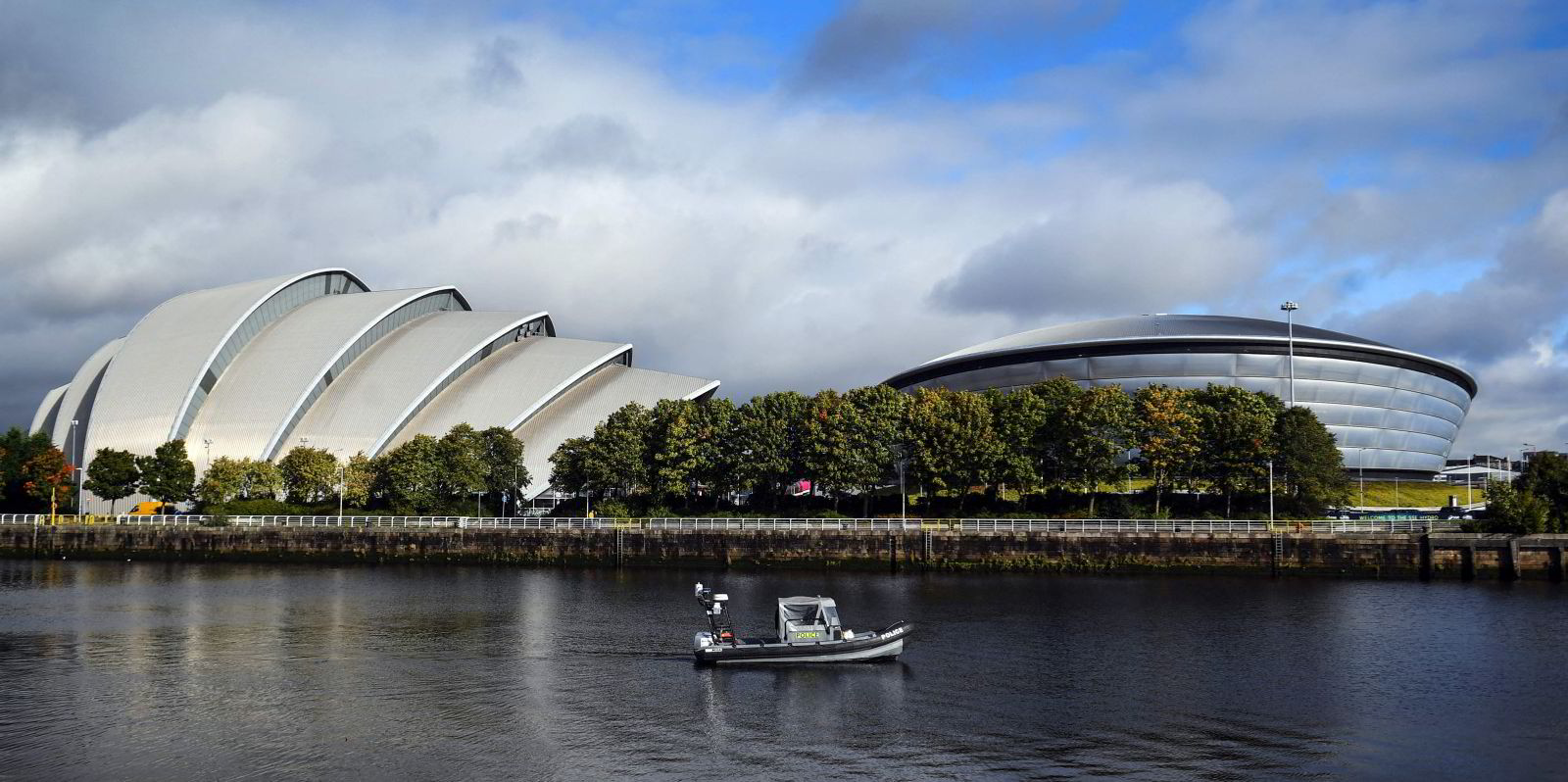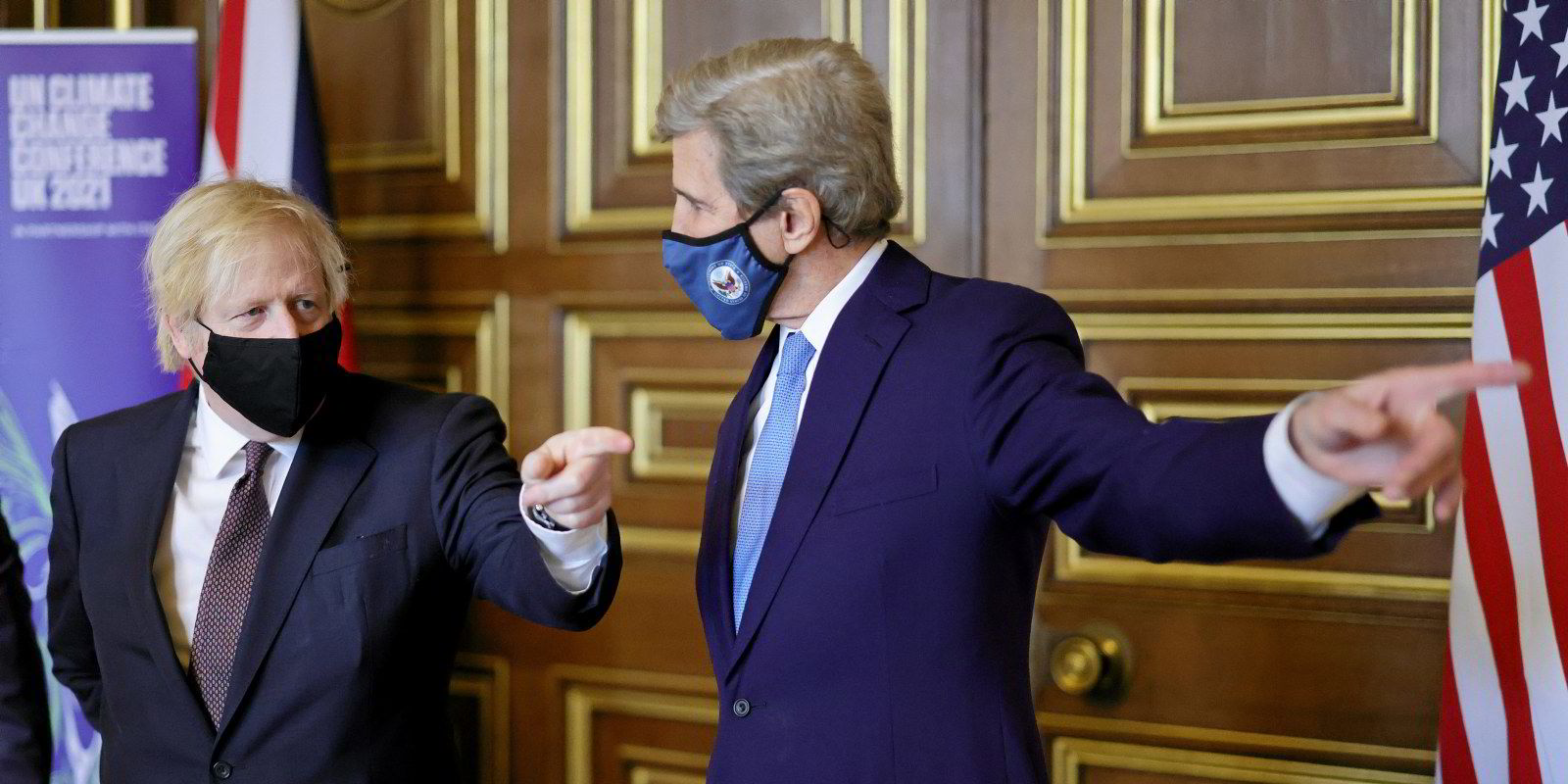You are unlikely to find shipping at the top of the agenda at the upcoming COP26 climate conference in Scotland.
But ahead of the event in Glasgow, there are key forces at work that could shape how shipping might slash greenhouse gas emissions.
The buzzword for tackling the industry's carbon footprint will be "ambition", with COP26 addressing growing calls for net-zero carbon emissions by the middle of the century.
The key impact of the COP26 negotiations is likely to be its influence on what happens at the International Maritime Organization. The United Nations' regulatory body is scheduled to hold a key meeting on carbon on the heels of the Glasgow gathering.
The IMO has been working towards chopping shipping's GHG emissions by 50% in 2050, relative to 2008 levels.
But that was before a growing coalition of nations, including the US, UK and every country from the European Union, began calling on the IMO to quickly up its ambition for net-zero carbon emissions within three decades.
Now, the clarion call for net zero by 2050 has been accepted across shipping, perhaps reluctantly in some quarters.
Katharine Palmer, the UN climate champion for shipping, said that she would like to see increased ambition from COP26 make its way into the IMO negotiations.
From global stage to IMO
The UN shipping regulator's Marine Environmental Protection Committee is scheduled to address carbon rules during a four-day meeting from 22 November.
She pointed to the IMO's initial GHG strategy, which followed the Paris Agreement, as an example of the organisation quickly taking up the spirit of a COP meeting.

"It's that kind of leveraging the increased ambition at the global stage and taking it into the IMO, so that negotiations on increasing ambition in the final greenhouse gas strategy and negotiation on mid to long-term measures can start with momentum behind them," she said.
Political pressure
Tristan Smith, who researches shipping at University College London's UCL Energy Institute, said COP26 may have an impact on shipping by bringing political pressure to bear at the IMO.
That pressure may come in the form of impatience with the organisation's approach to GHG emissions.
1. Secure global net zero by mid-century and keep 1.5-degree global warming cap within reach
Countries are being asked to come forward with ambitious 2030 emissions reductions targets that align with reaching net zero by the middle of the century. Key measures include phasing out coal, curtailing deforestation, speeding up the switch to electric cars and encouraging investment in renewables.
2. Adapt to protect communities and natural habitats
Nations are encouraged to protect and restore ecosystems, in addition to building defences, warning systems and resilient infrastructure.
3. Mobilise finance
Developed countries are being asked to make good on their promise to mobilise at least $100bn, a target that already missed its 2020 deadline, to finance climate change efforts in poorer nations, and financial institutions are seen as key to unleashing trillions of dollars more to help fund the move to net zero.
4. Working together to deliver
COP26 is aiming to boost collaboration between governments, businesses and civil society.
"I think many countries will point to the IMO as very inadequate," Smith said. "I think there is a broad scientific and, to a certain extent, corporate consensus that the IMO is lagging significantly in terms of action."
It has been 24 years since the IMO was assigned responsibility for tackling shipping's GHG emissions under the Kyoto Protocol during COP3 in 1997, and so far the organisation has adopted only short-term measures, including a Carbon Intensity Indicator that the academic believes lacks an enforcement mechanism.
But the ramp-up to COP26 — particularly after the grim Intergovernmental Panel on Climate Change (IPCC) report calling for urgent action to prevent the Paris Agreement goals from sliding beyond reach — has seen growing acceptance that the IMO's goals should shift to target net-zero carbon emissions by 2050.
That has helped lead the International Chamber of Shipping (ICS), made up of shipowner associations from around the globe, to offer its support for net zero, with the condition that the IMO act to adopt a raft of proposals that would make it technically feasible to adopt zero carbon fuels in the years ahead.
“The shipping industry, like everybody else, recognises the seriousness of the climate crisis, and we recognise the call from scientists in the IPCC for immediate rapid action,” said Simon Bennett, the ICS deputy secretary general.
For many in the sector, the Paris Agreement that emerged out of COP21 in 2015 left out the industry, as it focused on capping temperature gains rather than regulating particular sectors. That kept the IMO as the primary driver for decarbonising shipping.
But Palmer, who is on secondment to the UN climate role from her job as global sustainability manager at classification society Lloyd's Register, said the goals of COP26 do apply to shipping.
"Shipping needs to raise its ambition, we need to increase effort, we need to consider [adaptation] and resilience and we need to mobilise finance into the sector and we need to collaborate," she said, listing the climate conference's goals.
Read more
- COP26 fuels debate over IMO role at heart of shipping's carbon effort
- After COP26, IMO to weigh calls for shift to zero-carbon goal
- We live on one planet, so why does shipping not speak with one voice?
- This time really could be different — shippers will pay to cut carbon
- ICS joins call for net zero by 2050 but urges swift IMO action





